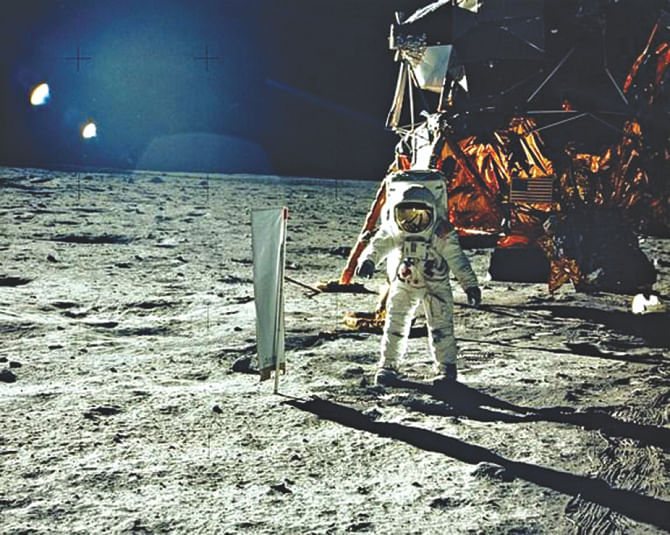Moon smells!
Moon smells!
Apollo astronauts describe lunar aroma

The moon has a distinctive smell. Ask any Apollo moonwalker about the odiferous nature of the lunar dirt and you'll get the same answer.
With Nasa's six Apollo lunar landing missions between 1969 and the end of 1972, a total of 12 astronauts kicked up the powdery dirt of the moon, becoming an elite group later to be tagged as the "dusty dozen."
From the modest 2.5 hour "moonwalk" of Apollo 11 to the forays totaling just over 22 hours outside a spacecraft on Apollo 17, Nasa's Apollo landing crews could not escape tracking lunar material inside their moon lander homes. Decades later, moonwalkers and lunar scientists are still trying to appreciate exactly what the moon's aroma brings to the astronaut's nose.
“All I can say is that everyone's instant impression of the smell was that of spent gunpowder, not that it was 'metallic' or 'acrid'. Spent gunpowder smell probably was much more implanted in our memories than other comparable odors," said Apollo 17's Harrison "Jack" Schmitt, a scientist-astronaut who walked the moon's surface in December of 1972.
Schmitt said that he believed all the moonwalkers agreed and commented at the time that, when they took their helmets off, 'fresh' regolith (the scientific name for moon dirt) in the cabin air smelled like spent gunpowder.
"For what it is worth, I always have suspected that the olfactory sensors are reacting to a variety of unsatisfied electron bonds as one would have in both just fired gunpowder and lunar dust newly introduced in the cabin," Schmitt said. "By the way, the time from starting re-pressurization [of the lunar lander] to my first comment about gunpowder was almost exactly seven minutes."
Larry Taylor, director of the Planetary Geosciences Institute at the University of Tennessee in Knoxville, agrees with Schmitt's take. He served in the "back-room" at Nasa's Johnson Space Center in Houston during the Apollo 17 mission, and was one of those who directly advised the astronauts on the moon during their trots across the lunar landscape.
"When the entire subject of the dust smell came up several years ago, I put forth that what the astronauts were smelling, that is, what their mucus membrane sensed, was highly activated dust particles with 'dangling bonds,'" Taylor said.
Taylor said that when a geologist smashes a rock here on Earth, that person will smell some odor that has been generated by the smashing of minerals, thereby creating the so-called dangling bonds.